
When Jeroo Doodhmal’s daughter began walking, she took her to get her feet measured and bought her first pair of shoes. But within a matter of months she had grown out of them and needed another pair, and Doodhmal began to feel dismayed at the way waste was mounting up.
“When I became aware of the effects of fast fashion in the children’s world, I was horrified,” she says. “British families buy 80 million pairs of children’s shoes each year, and the majority end up in landfill or an incinerator.”
Once there, they decompose slowly. “Sixty per cent of shoes are made from rubbers, plastics and other synthetic materials like PVC and EVA,” says Doodhmal. “Once they’re in landfill, they can leach plasticisers, heavy metals and other toxic chemicals into the ground and water.” PVC and EVA could take up to 1,000 years to decompose.
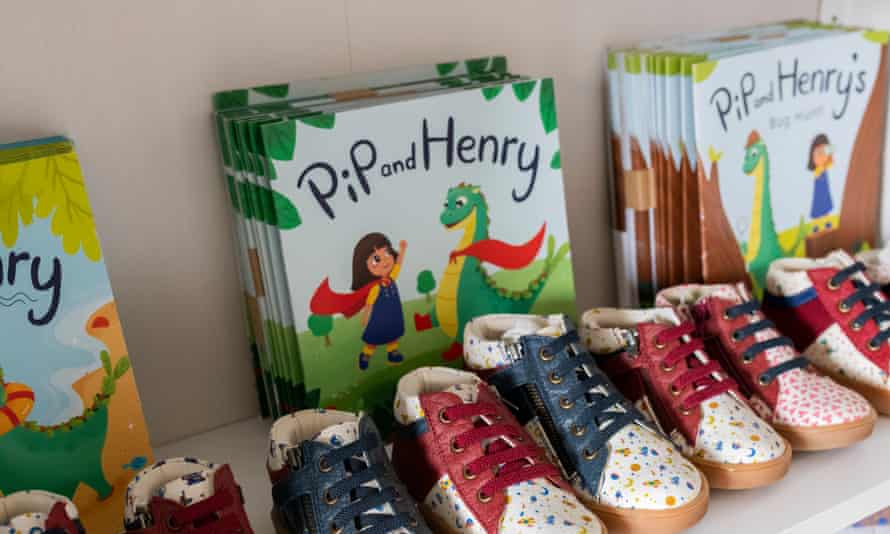
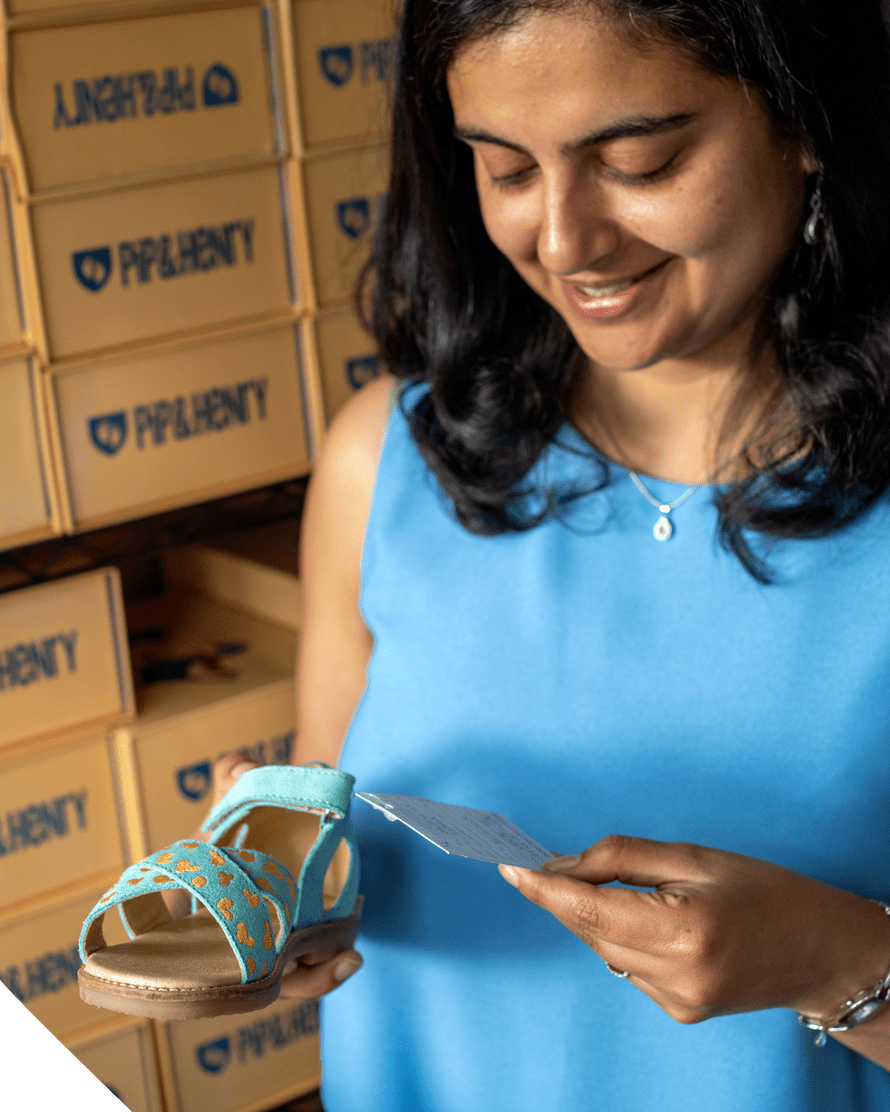
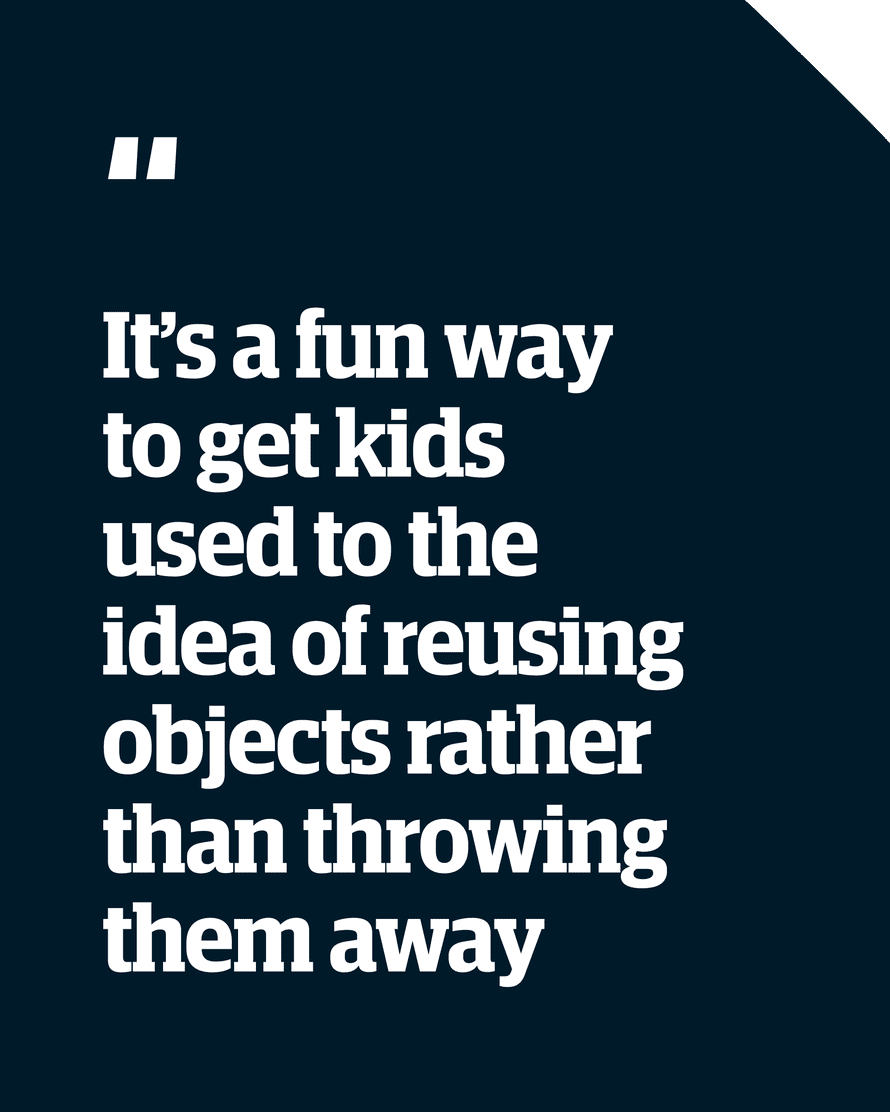
Doodhmal spotted a gap in the market for a children’s footwear brand that made sustainability central to its ethos, and the idea for Pip & Henry was born. The eco-shoe label launched at the end of 2021 and is thriving. With four eye-catching designs, it offers parents a stylish, guilt-free alternative to mass-produced footwear, while also helping to educate the next generation to become part of the solution.
“More than anything, we want kids to take their first steps in the world more mindfully,” she says. “We want to make children aware of the challenges facing the planet, but in a positive way that inspires them to find ways they can help. Those values are at the core of everything we do in the business.”
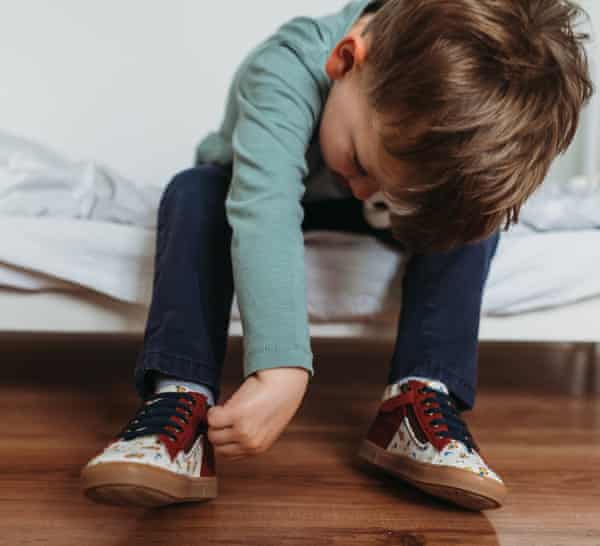
Pip & Henry’s shoes are made from sustainable materials including organic cotton, recycled rubber soles and an innovative fabric called Pinatex, which looks and feels like leather, says Doodhmal, but is actually made from the fibres of waste pineapple leaves. Future ranges could include recycled suede, chrome-free and vegetable-tanned leathers, and other fabrics such as jute, hemp and linen.
At £59.99, Pip & Henry’s shoes are priced at the top end of the market, but once a child has outgrown them they can be sent back for recycling in return for a £10-off voucher for the next pair. “We also accept shoes by other brands as part of our commitment to recycling,” says Doodhmal. “We’ve partnered with an organisation called First Mile, which takes the shoes, shreds and compacts them, so they can be used again for things like playground pads and insulation.”
Another way the brand sets itself apart from the competition is in its dedication to informing its young customers about the impact their daily choices have on the environment and “empowering them to drive change”, says Doodhmal.
The brand’s shoeboxes all double as board games, encouraging children to use everyday household waste for arts and crafts. “It’s a fun way to get kids used to the idea of reusing objects rather than throwing them away,” she says.
Doodhmal has also written a series of eco storybooks inspired by her daughter and her love of dinosaurs. “Pip is a little girl and Henry is her dinosaur friend,” she says. “They go off on adventures and learn about landfills, and about bees and bugs, and they organise a beach clean-up – things that teach them about the environment in a relatable way to capture their imaginations.”
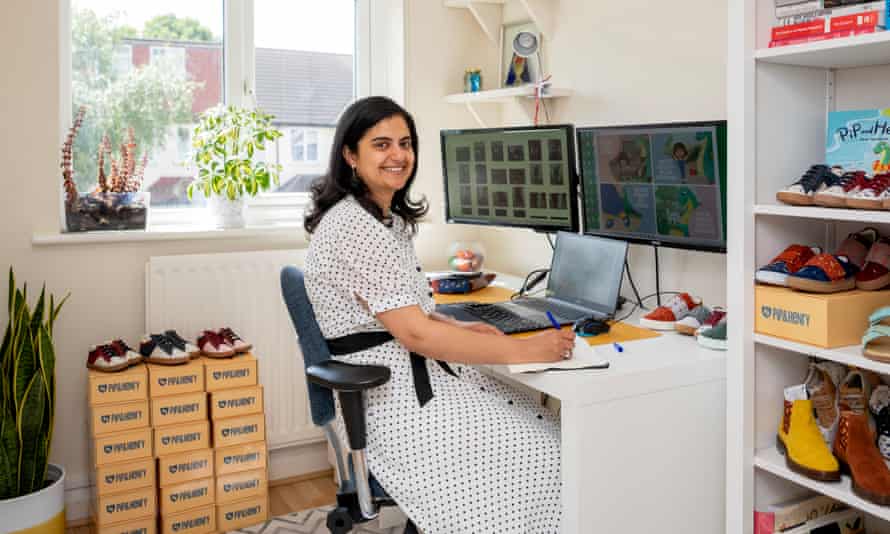
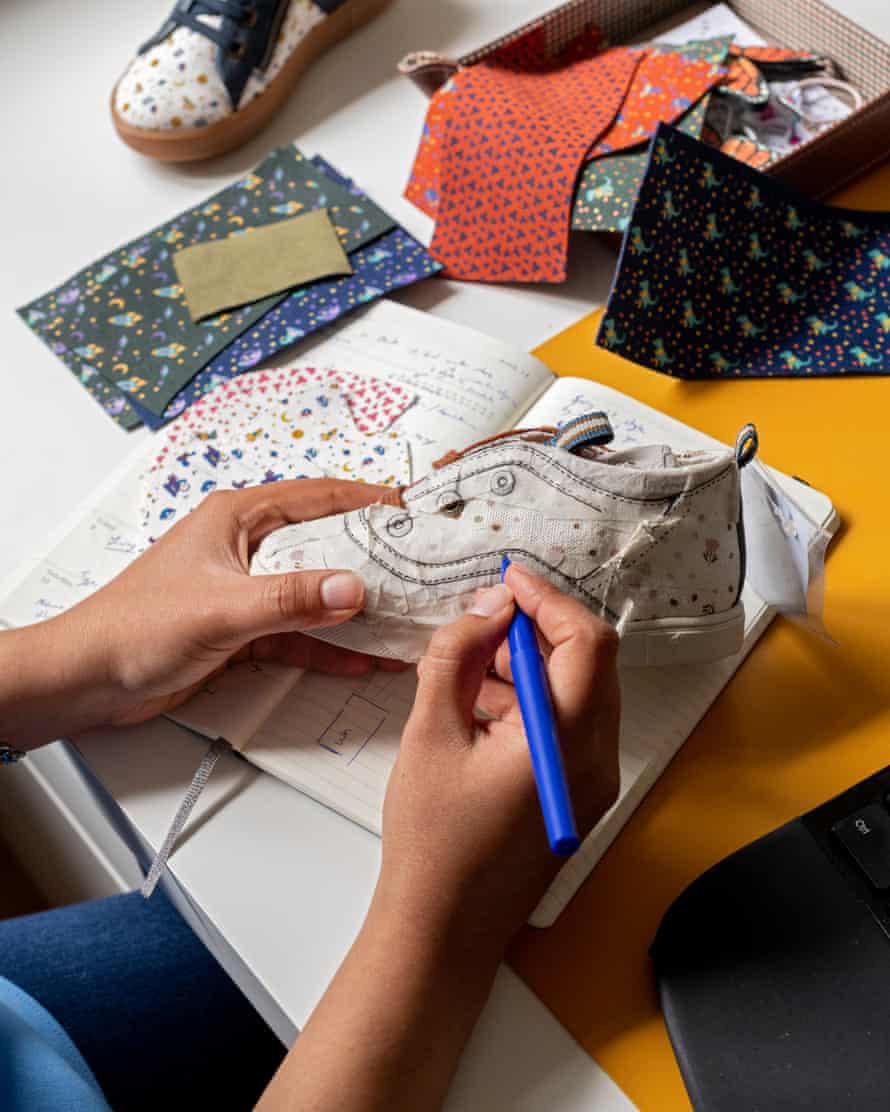
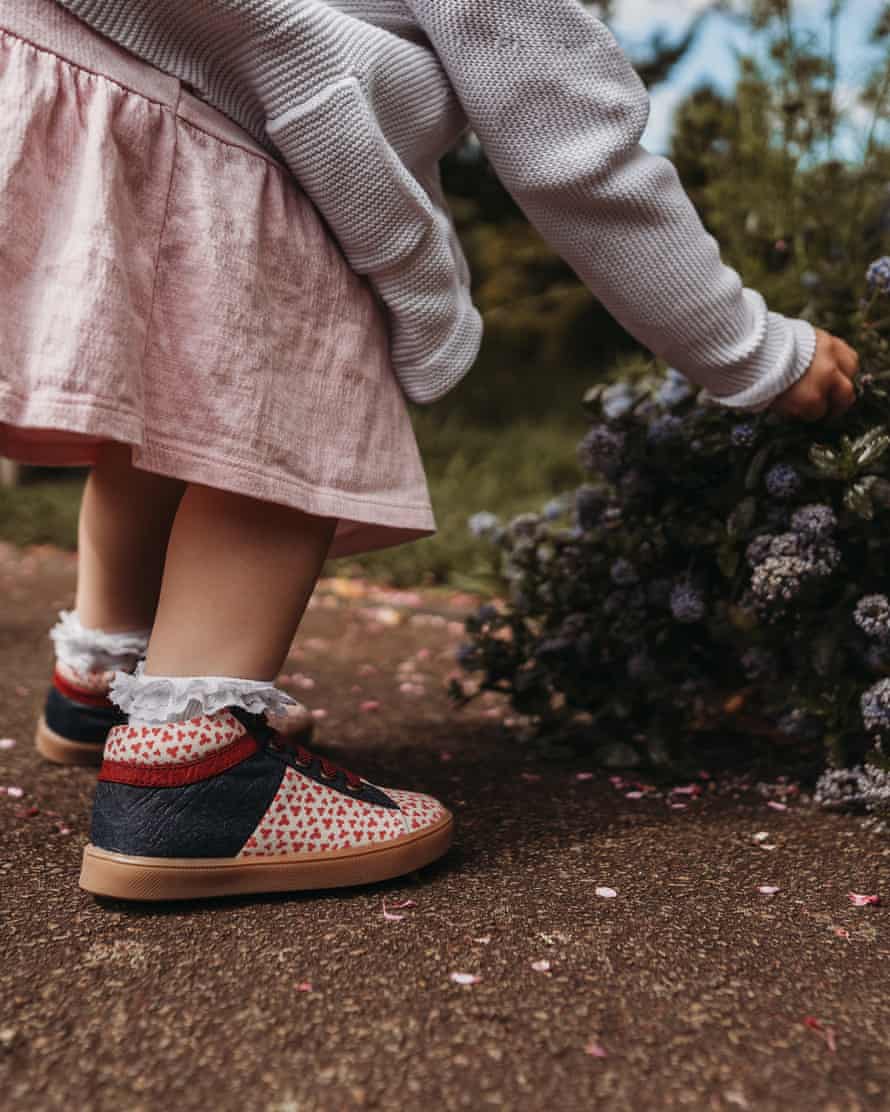
Doodhmal received a £15,000 loan through Start Up Loans delivery partner Virgin StartUp in December 2021 to launch Pip & Henry. She’s now fundraising again to expand the range to encompass sandals, boots and trainers.
Brimming with ideas, Doodhmal is also working on a groundbreaking “expandable” shoe, which she believes could radically reduce the scale of waste in the children’s footwear market. “Our aim is to create a shoe that can expand by at least three half-sizes, and therefore double the lifetime use of any shoe,” she says of the design, which is aimed at under-sevens – a period when children’s feet are growing rapidly.
Doodhmal recently won a £250,000 grant from The Circular Future Fund, launched by the John Lewis Partnership, to develop the design, which she hopes is just a year away from being launched in shops. Several options are being explored for the sole, the hardest part to get right, including using a flexible material that can be stretched and then locked into place.
Although it’s a challenge to win over customers used to spending far less on their children’s shoes, Doodhmal has been encouraged by the number of people for whom the brand’s sustainability is a major selling point. “When it comes to responsible manufacturing, consumers are increasingly demanding more,” she says.
If you’d like help to green – and grow – your business, the British Business Bank should be your first port of call. Dedicated to making finance markets work better for smaller businesses, it provides free financial tools and expert information to get you moving in the right direction. Find out more at british-business-bank.co.uk/finance-hub/sustainability